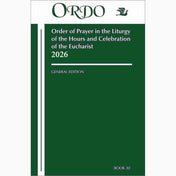From the desk of the Tar Heel Disciple:
August 26, 2025
There does not appear to be a great devotion in our time among the people of God to Saint John the Baptist. The liturgical calendar of the Catholic Church gives witness to a history of such devotion, manifested more universally in past centuries. He is the only saint to have a feast day on the universal calendar celebrating his birth, and another, commemorating his death by martyrdom. The first is the Solemnity of the Nativity of St. John the Baptist, on June 24, which is seen as so important by the Church that it is even celebrated if it falls on a Sunday. The second feast, designated as a memorial now called the Passion of Saint John the Baptist (previously: the Beheading of St. John the Baptist), is observed on August 29. Both feasts have their origin in the first centuries of the Church’s history. The Eastern Catholic and Eastern Orthodox Churches observe an additional four feasts in honor of this saint. And, moreover, St. John’s parents, Saints Elizabeth and Zachary, are celebrated with their own feast day (November 5).
In addition to the liturgical heritage, there are many other indications of deep devotion to this much heralded saint in times past and around the world. Numerous works of art recall his birth, ministry, and death. Dozens of churches throughout the world (and two mosques!) claim to have relics of the saint, including portions of his head, arms, and hands. And he was honored by our ancestors in the faith when he was named as the patron saint of many localities, including French Canada, the island of Puerto Rico (which was originally named Saint John), and the Diocese of Charleston, South Carolina, among copious others. Church-going Catholics would also note that Saint John is highlighted in the Scriptures and music of the holy season of Advent. Sadly, perhaps, fewer would know that a direct quote of his is proclaimed in every Catholic Mass: “Behold, the Lamb of God, who takes away the sins of the world....” (John 1:29, NAB)
In our own day, Saint John is often seen as a kind of eccentric, relegated in our consciousness to the wilderness of ancient Judea. The story that will soon again be proclaimed on the memorial of his passion reminds us that he died as a witness of truth and justice, having reminded King Herod Antipas that his marriage was invalid and thus contrary to God's will. Perhaps that might be a reason that this generation fails to embrace this saint as one of its own? And yet dare we too readily dismiss as unimportant a man of whom the Lord Jesus said, “Truly I tell you, among those born of women no one has arisen greater than John the Baptist…”? (Matthew 11:11, NRSV)
St. John the Baptist medals, statue, art and books:




